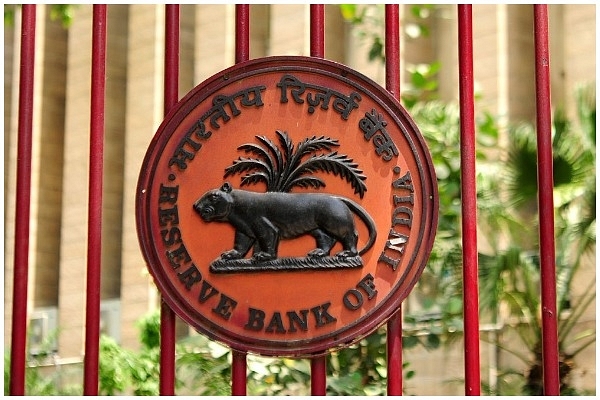Economy
Monetary Policy And More: Will The RBI Ever Really Not Disappoint?
- There is a need for a more proactive monetary policy approach towards dealing with the crisis the country is currently in.

The Reserve Bank of India office in Mumbai. (GettyImages)
The Monetary Policy Committee recently decided to keep the policy rates unchanged — and the Reserve Bank of India has been missing in action as the economy is gradually unlocked.
There are simple rules of managing a situational crisis and the first is to do no harm.
Recently, the minutes of the meeting of the previous MPC meeting were made public where the Deputy Governor hinted at the prospect of an increase in policy rates, should inflation persist, given the current monetary policy framework.
This statement, while hinting at the need for a legislative change in the framework and, perhaps, was done with the intention of putting some pressure to expediate these changes — has done more damage.
But this is not the only reason for my disappointment from an institution which has lagged behind its global peers. This gap has only widened during the current pandemic.
Regular readers can recall my disenchantment with the conduct of the monetary policy over the last few quarters — to be more specific, ever since the Monetary Policy Committee came into existence.
That the monetary policy framework needs a change is well recognised by many, but the problem does not really end there.
The core problem emerged after the MPC interpreted 4 per cent to be the de-facto ceiling of the inflation target rather than 6 per cent — a fact that has been repeatedly highlighted by many, including Harsh Gupta.
The problem was, therefore, of interpretation by the MPC rather than of what the framework explicitly stated.
Moreover, it is ironic that just as the world moved away from inflation targeting, India undertook this bold experiment which came at a huge cost in terms of the growth that we sacrificed.
The present pandemic has exposed these vulnerabilities — more so now that we have a Deputy Governor talk about the prospects of increasing interest rates in the middle of an unprecedented economic slump.
The fundamental error is well represented when the MPC ignores WPI, or the GDP deflator but focusses on CPI and views the possibility of inflationary impulses becoming permanent.
This at a time when the nominal wages have been cut due to the pandemic which represents a permanent weakness in domestic consumption — and consequently aggregate demand.
It is very much a possibility that the present crisis can represent a simultaneous supply and demand shock.
That is, the pandemic can force bankruptcies of firms which will curtail the aggregate supply while on the other hand, the weakness in domestic consumption can result in a reduction in aggregate demand.
Both these factors would result in a lower level of GDP growth — and to make matters worse, this lower level could persist for the coming few years.
This would very likely be a situation if the MPC were to increase interest rates.
Any inflationary impulse at the moment is due to supply shortages and it is unlikely that CPI will persist with a reduction in nominal wages, especially as WPI is negative.
Moreover, the CPI-WPI divergence should itself mandate the MPC to adopt a more nuanced approach, especially during the pandemic.
Rate hikes must definitely be taken off the table at least for the foreseeable future as no sensible central bank is even thinking of such a possibility.
The other issue is not of interest rates which is just one of the many tools available with central banks.
The other being money supply through purchases of government bonds.
The RBI has been largely conservative with Open Market Operations as it buys government securities with the intention of ensuring monetary-fiscal coordination.
It has been more conservative with the use of unconventional monetary policy measures even as several central banks have gone to the extent of providing direct support through various instruments to corporate bond markets.
During a crisis, monetary-fiscal coordination becomes extremely important as it provides the economy with a much-needed stimulus.
This is precisely why the RBI needs to be more proactive while purchasing Indian government bonds rather than purchasing US 10-year bonds at an aggressive pace.
There is a long list of dos and a longer lists of don’ts for the RBI and the MPC.
A new Monetary Policy Committee is likely to be constituted before the next meeting and one hopes that the new members will evaluate the mistakes made by their predecessors and rectify the same.
However, there is a need for a more proactive monetary policy approach towards dealing with the crisis given our fiscal constraints.
One hopes that the institution will recognise the same and rise up to the occasion.
Introducing ElectionsHQ + 50 Ground Reports Project
The 2024 elections might seem easy to guess, but there are some important questions that shouldn't be missed.
Do freebies still sway voters? Do people prioritise infrastructure when voting? How will Punjab vote?
The answers to these questions provide great insights into where we, as a country, are headed in the years to come.
Swarajya is starting a project with an aim to do 50 solid ground stories and a smart commentary service on WhatsApp, a one-of-a-kind. We'd love your support during this election season.
Click below to contribute.
Latest